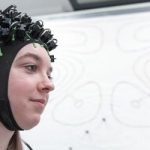Commonwealth Edison Embracing Quantum Computing to Solve Specialized Grid Problems

(Exelon) Commonwealth Edison Company (ComEd), a subsidiary of Chicago-based Exelon Corp. (NASDAQ:EXC), has been quick to embrace the potential of quantum computing.
Utility companies across the country have been forced to come to terms with a changing environment. A proliferation of renewable energy sources, such as solar and wind power, has resulted in an increasingly decentralized power grid. The trend is set to accelerate over the next several years. It is already creating problems of complexity. Thanks to the integration of new energy sources, as well as two-way power distribution, utilities’ traditional computational models have come under increasing strain, magnifying the challenge of system-wide load management.
To explore the implications of this disruption, ComEd built the nation’s first microgrid network, connecting its Bronzeville Community Microgrid to the Illinois Institute of Technology’s Perfect Power System. The system has served as a testing ground for distributed, decentralized energy transmission. It has revealed the limitations of its classical computing model. On Feb. 27, Aleksi Paaso, ComEd director of distribution planning and smart grid innovation, contended that quantum computers may offer the solution:
“ComEd has been developing systems to monitor and control grid conditions with greater speed and accuracy. Quantum computing could give us much greater insight into how power can be measured and managed. Quantum computing might play a role in deploying such distributed energy resources at scale. We’re working toward a future in which the smart grid will use renewable resources efficiently at a local level or across a regional network.”
Quantum computers could prove to be more powerful than conventional supercomputers in solving specialized problems, including modeling a “smart grid” that draws from renewable resources such as solar panels and geothermal generators.



















